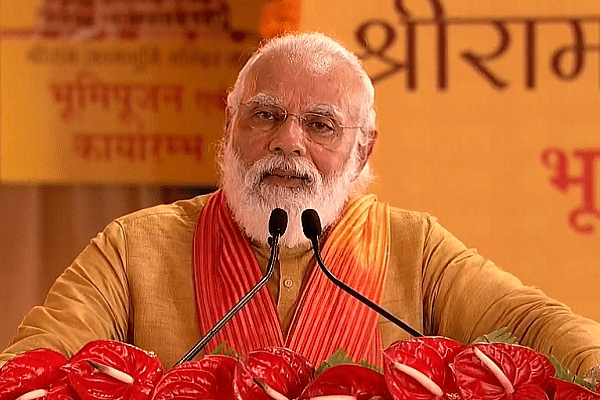((((((((((+++++Pathan New Hindi Movie++++))))))))
+------------------------------------------------------------------------+
Spouse
Jashodaben Modi
(m. 1968; sep. 1971)[2]
Residence(s)
7, Lok Kalyan Marg, New Delhi, Delhi, India[a]
Alma mater
Delhi University (BA)
Gujarat University (MA)
Awards
List of state honours
Modi was born and raised in Vadnagar in northeastern Gujarat, where he completed his secondary education. He was introduced to the RSS at the age of eight. His account of helping his father sell tea at the Vadnagar railway station has not been reliably corroborated. At age 18, he was married to Jashodaben Modi, whom he abandoned soon after, only publicly acknowledging her four decades later when legally required to do so. Modi became a full-time worker for the RSS in Gujarat in 1971. The RSS assigned him to the BJP in 1985 and he held several positions within the party hierarchy until 2001, rising to the rank of general secretary.
In 2001, Modi was appointed Chief Minister of Gujarat and elected to the legislative assembly soon after. His administration is considered complicit in the 2002 Gujarat riots,[d] and has been criticised for its management of the crisis. A little over 1,000 people were killed, according to official records, three-quarters of whom were Muslim; independent sources estimated 2,000 deaths, mostly Muslim. A Special Investigation Team appointed by the Supreme Court of India in 2012 found no evidence to initiate prosecution proceedings against him.While his policies as chief minister, which were credited for encouraging economic growth, were praised, Modi's administration was criticised for failing to significantly improve health, poverty and education indices in the state. In the 2014 Indian general election, Modi led the BJP to a parliamentary majority, the first for a party since 1984. His administration increased direct foreign investment, and it reduced spending on healthcare, education, and social-welfare programmes. Modi began a high-profile sanitation campaign, controversially initiated the 2016 demonetisation of high-denomination banknotes and introduced the Goods and Services Tax, and weakened or abolished environmental and labour laws.
Modi's administration launched the 2019 Balakot airstrike against an alleged terrorist training camp in Pakistan. The airstrike failed,and the deaths of six Indian personnel to friendly fire was later revealed: but the action had nationalist appeal.Modi's party comfortably won the 2019 general election which followed. In its second term, his administration revoked the special status of Jammu and Kashmir, an Indian-administered portion of the disputed Kashmir region, and introduced the Citizenship Amendment Act, prompting widespread protests, and spurring the 2020 Delhi riots in which Muslims were brutalised and killed by Hindu mobs,sometimes with the complicity of police forces controlled by the Modi administration.Three controversial farm laws led to sit-ins by farmers across the country, eventually causing their formal repeal. Modi oversaw India's response to the COVID-19 pandemic, during which 4.7 million Indians died, according to the World Health Organization's estimates.
Under Modi's tenure, India has experienced democratic backsliding, or the weakening of democratic institutions, individual rights, and freedom of expression. As prime minister, he has received consistently high approval ratings.Modi has been described as engineering a political realignment towards right-wing politics. He remains a controversial figure domestically and internationally, over his Hindu nationalist beliefs and handling of the Gujarat riots, which have been cited as evidence of a majoritarian and exclusionary social agenda.
late 1969 or early 1970, he returned to Vadnagar for a brief visit before leaving again for Ahmedabad, where he lived with his uncle and worked in his uncle's canteen at Gujarat State Road Transport Corporation.
In Ahmedabad, Modi renewed his acquaintance with Inamdar, who was based at the Hedgewar Bhavan (RSS headquarters) in the city.[66][67][68] Modi's first-known political activity as an adult was in 1971 when he joined a Jana Sangh Satyagraha in Delhi led by Atal Bihari Vajpayee to enlist to fight in the Bangladesh Liberation War. The Indira Gandhi-led central government prohibited open support for the Mukti Bahini; according to Modi, he was briefly held in Tihar Jail.After the Indo-Pakistani War of 1971, Modi left his uncle's employment and became a full-time pracharak (campaigner) for the RSS,working under Inamdar.Shortly before the war, Modi took part in a non-violent protest in New Delhi against the Indian government, for which he was arrested; because of this arrest, Inamdar decided to mentor Modi.According to Modi, he was part of a Satyagraha that led to a political war.
In 1978, Modi received a Bachelor of Arts (BA) degree in political science from the School of Open Learningat the Delhi University.In 1983, he received a Master of Arts (MA) degree in political science from Gujarat University, graduating with a first class as an external distance learning student. There is a controversy surrounding the authenticity of his BA and MA degrees.




0 Comments